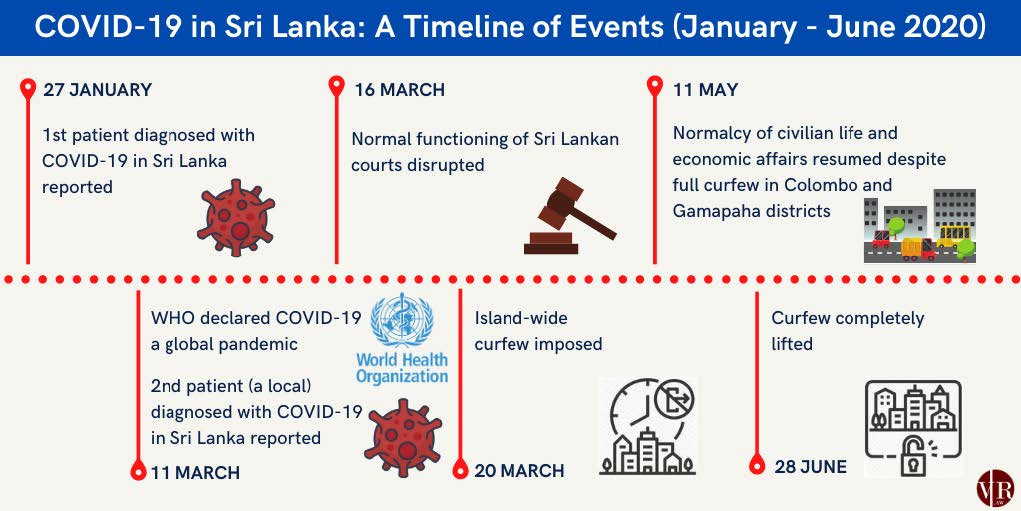Introduction
On 11 March 2020, the novel coronavirus (COVID-19) was declared a pandemic by the World Health Organization (WHO). In Sri Lanka, the first diagnosis of COVID-19 was reported on 27 January 2020. Indication of the spread of the virus was visible from 11 March 2020, after the second patient, a local, was reported to have contracted the virus. As a result, the Sri Lankan government on 20 March 2020, imposed a curfew island-wide, and ordered sectors other than essential services to adopt a ‘work from home’ model. From 11 May 2020, civilian life and economic affairs returned to normal despite the imposition of a full/partial curfew in parts of the island. Finally, on 28 June 2020, the curfew was completely lifted. The Sri Lankan government’s response to COVID-19, albeit prompt and well-received, have affected several sectors in Sri Lanka, including the judicial sector. Since 16 March 2020, the normal functioning of Sri Lankan courts was disrupted. The Judicial Service Commission Secretariat (JSC) directed all high courts, district courts, magistrate’s courts, and labor tribunals to avoid hearing of cases in open court, except for pressing and crucial matters. However, the JSC noted that this restriction did not extend to hearing matters relating to bail. The JSC also recommended the use of communication technologies such as virtual court proceedings to grant bail or to extend the duration of remand. (See Figure 1: Timeline of events in relation to Covid-19 in Sri Lanka).

Published Date: September 16, 2020
